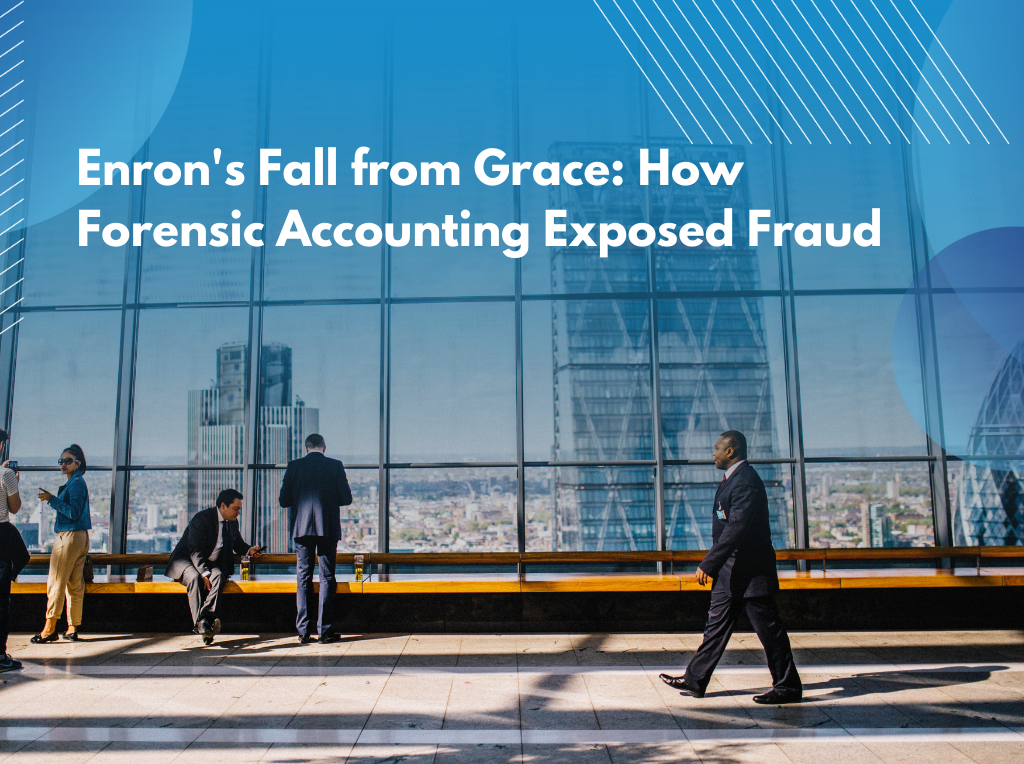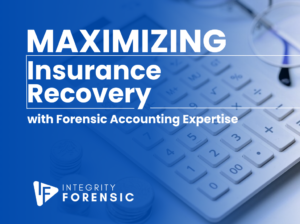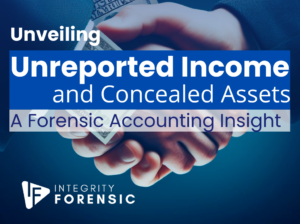In the early 2000s, Enron Corporation, a renowned energy company, experienced a cataclysmic collapse that reverberated across industries. Unbeknownst to many, Enron’s success had been built upon a foundation of deceitful accounting practices and the establishment of off-balance-sheet entities. These intricate maneuvers allowed Enron to manipulate financial statements, inflate profits, and obscure its mounting debts. However, it was the meticulous work of forensic accountants that peeled back the layers of deception, unearthing one of the most infamous cases of corporate fraud in history.
Forensic accountants played a crucial role in dissecting Enron’s convoluted financial records and transactions. Armed with their specialized investigative techniques, they painstakingly traced the intricate flow of funds, meticulously identified irregularities, and uncovered compelling evidence of fraudulent activities. These dedicated professionals exposed the elaborate schemes orchestrated by Enron’s executives to deceive investors, shareholders, and regulatory bodies alike.
Among the many contributions of forensic accounting in the Enron case, one of the most significant was the identification and analysis of special purpose entities (SPEs). These entities were utilized by Enron to manipulate financial statements and deceive stakeholders. Forensic accountants meticulously unraveled the complex web of these entities, shedding light on their true nature as vehicles for concealing debt and inflating profits. Their findings were instrumental in establishing the fraudulent intent that underpinned Enron’s actions.
The exposure of Enron’s fraud had a profound and lasting impact on the field of forensic accounting. It served as a wake-up call, emphasizing the critical importance of independence, skepticism, and thoroughness in financial investigations. In the aftermath of the Enron scandal, regulatory reforms were implemented, and corporate financial reporting practices faced heightened scrutiny.
Enron’s dramatic downfall stands as a stark reminder of the indispensable role forensic accounting plays in exposing fraud. The relentless efforts of forensic accountants, armed with their expertise and attention to detail, unraveled the complex web of deception spun by Enron. The lessons learned from this scandal continue to shape the field of forensic accounting, reinforcing the need for unwavering vigilance, meticulous expertise, and unyielding integrity in the ongoing fight against fraudulent activities.
In conclusion, Enron’s fall from grace serves as a chilling reminder of the pivotal role forensic accounting plays in uncovering and exposing fraud. Thanks to the meticulous work of forensic accountants, the intricate web of deception spun by Enron’s executives was unraveled, revealing the magnitude of the fraud that had taken place.
The financial losses resulting from Enron’s fraudulent activities were staggering. The company’s stock plummeted from a high of $90 per share to mere pennies, resulting in billions of dollars in shareholder value wiped out. Employees who had invested their retirement savings in Enron stock were left devastated, losing their life savings overnight. Furthermore, numerous investors, both individual and institutional, suffered substantial financial losses as a result of the company’s deceptive practices.
In the aftermath of Enron’s collapse, efforts were made to recover some of the lost funds. Forensic accountants played a crucial role in tracing and identifying assets that could be liquidated and used to compensate victims. Through their diligent work, a portion of the funds was recovered and distributed to those who had suffered losses. However, the recovery process was complex and time-consuming, and not all losses could be fully recouped.
The Enron scandal had far-reaching consequences, not only in terms of financial losses but also in reshaping the landscape of corporate governance and financial regulation. It led to sweeping reforms aimed at enhancing transparency, strengthening corporate accountability, and improving the integrity of financial reporting. The regulatory changes brought about by Enron’s downfall continue to influence corporate practices and financial oversight today.
Enron’s collapse stands as a powerful testament to the importance of forensic accounting in safeguarding the integrity of financial systems. The diligent work of forensic accountants, armed with their expertise and unwavering commitment to truth, played a crucial role in bringing to light the fraudulent activities that had taken place within the company. Their contributions continue to shape the field of forensic accounting, reinforcing the need for meticulous scrutiny, ethical conduct, and relentless dedication in the fight against corporate fraud.
While the losses suffered in the wake of Enron’s fraud were substantial, the case also serves as a stark reminder of the importance of learning from such events. It is through understanding and addressing the failures that led to Enron’s downfall that we can strive to prevent similar instances of fraud in the future. By bolstering forensic accounting practices, fostering a culture of transparency, and enforcing rigorous regulatory oversight, we can work towards building a more robust and trustworthy financial system for all.
At Integrity Forensic, we have a team of experienced forensic accountants to assist you. Call now for a free consultation: 855-673-9999 or send us a message at questions@integrityforensic.com.





